Former senior Board member facing multiple allegations of sex abuse, other Linfield trustees facing accusations of similar misconduct

Multiple Linfield Board of Trustees members are facing accusations of sexual misconduct, by at least one student and one faculty member.
New information suggests that David Jubb, a former Linfield trustee who is facing felony indictment for sexually abusing four students, is not the only Board member who has been accused of sexual misconduct.
Jubb, a Linfield alumnus who had served on the board since 1994, reportedly sexually assaulted student AnnaMarie Motis at a trustee dinner in February of 2019, but has since been accused of abusing three more students. He resigned as a trustee in June of 2019.
Linfield College paid Motis a $500,000 settlement according to the Oregonian, and her separate federal civil lawsuit against Jubb is still pending. His attorney Stephen Houze said that “because this is a pending legal matter, attorney ethical rules prohibit my making any comment on the substance of the allegations in the case.”
However, he may not be the only Board of Trustee member accused of sexual misconduct.
Daniel Pollack-Pelzner, a Linfield English professor and the faculty trustee, said he is aware of three more active members of the Board who have been accused of sexual misconduct by at least one student and one faculty member.
The Linfield faculty trustee report from Pollack-Pelzner to the board addresses these concerns. He sent the document to all Linfield faculty on February 10, 2020.
The faculty trustee shares a report about Linfield happenings with the Board three times a year: at the time of the Board’s meetings in February, May and November. The faculty trustee then sends a copy of the document to all faculty members.
According to a professor who wished to remain anonymous for fear of retaliation, the student and faculty member who came forward with these allegations were not seeking compensation or punishment for the responsible trustees, but “hoped that by coming forward they might prompt the Board of Trustees to take swift action to address the problem in an open way.”
“I wish I could say that this [Jubb] was the only trustee who was alleged to have engaged in sexual misconduct,” Pollack-Pelzner wrote in his February report. “But as I have reported to the Board leadership and the college’s Title IX coordinator, there have also been complaints of sexual misconduct by trustees at the May 2019 trustee social event and the November 2019 trustee social event.”
He said in an email that he divulged more information on these allegations in his May 2020 report to the trustees, but Board Chairman David Baca redacted those sections and told the trustees not to discuss them.
Pollack-Pelzner also denied stating anything in his May 2020 report that was said during an executive session portion of the Board meeting. When the Board of Trustees enters executive session, all non-voting members must leave, and trustees are not supposed to discuss the meeting’s contents with any outside party.
“The information I included in my original report came from my personal experience, from memos the faculty had sent to the Board, from statements by survivors to me, and from communications I had received from the chair and the president,” Pollack-Pelzner said in an email. “He [Baca] claimed that my report contained privileged information from executive sessions. That was not true.”
In addition to the redactions from the May 2020 report, another Linfield employee said she had concerns about censorship.
An email sent to all McMinnville employees about Title IX compliance reveals that Baca may be reviewing messages about sexual misconduct policies. On May 15, Vice President of Student Affairs Susan Hopp sent President Miles K. Davis a drafted email containing information about sexual misconduct, mandatory reporting and confidentiality. She emphasized that third-party misconduct reporting cannot be formally investigated.
“Below is the message drafted,” it said. “If you wish to have Dave Baca review, please pass on.”
The employee said the email was sent to faculty later with the original message to Davis redacted.
Some members of the Linfield community have protested Baca’s management of the sexual misconduct allegations and have called for his resignation. This is the second circulated petition calling on Baca’s resignation in two years. The first was in December 2018 following student protests over rumored faculty cuts.
The Linfield Review reached out to Baca for comment but he declined.
In response to questions about the petition for Baca’s resignation, a spokesperson for the Linfield administration said that “although it is not the administration’s role to comment on how such a petition should be addressed, it is fair to say that there are a great number of factual inaccuracies in the petition.”
“I have to devote my report to… the article posted on the Oregonian’s website on December 10, 2019 reporting the allegations that a senior member of the Board of Trustees sexually assaulted the student trustee at a February 2019 trustee social event and that the college was aware of a prior allegation against this senior trustee but had failed to take action,” Pollack-Pelzner said in his February faculty trustee report.
According to a faculty member, his February report was meant to be sent to Linfield faculty sooner, but the administration withheld it until Davis could respond. Both Davis’ and Pollack-Pelzner’s statements were sent together to faculty at 1:50 p.m. on Monday, February 10, though the faculty trustee report was dated February 7. The faculty meeting was at 4 p.m. on February 10.
“The president asked me to withdraw my report,” Pollack-Pelzner said. “When I declined to do so, the president released it to the faculty assembly and the Board with his written response.”
A spokesperson for the Linfield administration said that an investigation into these allegations is ongoing and so far it is unclear whether or not any policy has been breached.
Davis wrote in his response to Pollack-Pelzner’s report: “I am sharing this statement not to stifle welcomed dialogue, but to correct factual errors and address unsupported legal conclusions, including assertions that the college took no action to address past reports of sexual misconduct… and inaccurate characterizations of statements by the Board chair.”
He continued to assert the college’s stance on sexual assault and misconduct: “We understand the real-life consequences for all students, including the trauma of not being believed, or of being condemned unfairly. My experience is that Linfield is, and has been, guided by an unshakeable desire to do the right thing,” he wrote.
“I am deeply concerned…. that President Davis attempted to prevent Daniel from sending his faculty trustee report to the Board of Trustees,” the anonymous professor said in an email. “While I appreciate the need for confidentiality, silence and silencing are not necessary.”
Pollack-Pelzner’s report also stated the need for for serious action to be taken by the Board of Trustees and Linfield leadership: he called for mandatory sexual assault and harassment training, and stated his frustration at the lack of communication from the administration. He claimed the college knew about the lawsuit before the Oregonian reported on it.
“College leadership is not insensitive to reminders that our response should be timely,” Davis said in his response to the February faculty trustee report. “In the case of recent reports [2019], I would note that initial details were shared only last week, and the first anonymous communication referred not to sexual misconduct but rather, to unwelcome and uncomfortable interactions and comments.”*
“Even as those two days passed in silence from the administration, our classrooms were abuzz with students’ confusion, anger, and grief,” Pollack-Pelzner wrote in the February report. “For the campus to learn about an allegation of the deepest breach of trust by one of the most powerful members of the Linfield community, and then not to hear anything from the Board or president for two days was an experience that undermined the message of concern that the president later sent.”
Davis sent an email to the Linfield community, including students, on December 12, 2019 in the wake of the Oregonian’s article addressing Motis’ lawsuit. “I am committed to sharing as much as I can, but there are times when what we can say is limited by privacy laws and other legal restrictions,” he wrote. “Please understand that what might seem like a limited response does not reflect a lack of real care and concern.”
The anonymous professor said she understands the need for confidentiality, but that communication from Linfield leadership is necessary. “There is nothing that would prevent the administration or Board of Trustees from providing the Linfield Community with a description of proactive changes they plan to make or have taken to address the issue,” she said in an email.
She went on to say that mandatory sexual assault and harassment training were not initiated until the spring of 2020, around a year after Motis first reported her allegations to the college.
Davis declined to respond to the Review’s questions, and instead passed the inquiries to members of the Linfield communications team.
The spokesperson for the Linfield administration said that Davis learned for the first time in February of 2020 of “concerns by anonymous persons,” but it was unclear if those concerns were related to sexual misconduct. At that time no report had been made to the Title IX coordinator. Davis did see the faculty trustee report and heard the presentation made to the Board.
Not only did Pollack-Pelzner criticize the administration’s silence after the original report of Jubb’s alleged assault, but he also expressed his frustration for nearly two months of leadership complacency regarding these sexual misconduct reports— from the first Oregonian article in December of 2019 to the February 2020 board meeting.
“We had already begun the process of returning to the Board to encourage and support their work on ensuring student safety and addressing the nature of interpersonal interactions they as a Board deem suitable and appropriate,” Davis wrote in his response to Pollack-Pelzner’s report. “I am not attempting to downplay the importance of the experience we have recently had.”
“The fact that this behavior was ignored and allowed to occur infuriates me,” the anonymous professor said in an email. “The slow response to action and lack of communication breeds mistrust. Seeing that the Board of Trustees’ main charge is to protect the financial health of the institution, it is bewildering to me that due to the Board’s actions and inaction we are incurring major financial losses due to legal fees and settlements, and stand to have additional financial strain caused by the potential recruitment challenges that a tarnished reputation brings.”
Reshmi Dutt-Ballerstadt, another Linfield English professor and a co-coordinator of the gender studies program, has been vocal about her discontent for the way the Linfield administration has handled these cases of sexual misconduct.
“As a faculty who co-coordinates the Gender Studies program at Linfield and is a strong advocate for stopping sexual… misconduct against women and men and members of the GLBTQI communities, I have been extremely disturbed and disappointed— to say the least— that our students have been harmed…by members of our own community,” she said in an email.
In an email addressed to the faculty assembly on May 12, Dutt-Ballerstadt said it was “high time” the faculty came together to better protect students and hold members of the administration accountable.
“While I understand that there are issues of confidentiality and want to respect such confidentiality, nothing is prohibiting our administration from disclosing that complaints have been filed and there are more ‘trustees’ beyond Mr. Jubb who have been alleged,” she said.
“When Mr. Jubb resigned from the board, our chair of the board of trustees, Mr. Baca, praised and thanked him. Such gestures perpetuate the harmful notion that acts of sexual violence have been normalized on our campus,” she said.
The email from Baca to the Board after Jubb’s resignation said: “Dave [Jubb] provided valuable service to the board and the college over many decades. He has been a classmate, friend, and associate of many of us for years, and for those so moved, it is appropriate to express gratitude for his positive contributions, but in doing so we should respect Dave’s privacy.”
Dutt-Ballerstadt claims Baca has failed to provide a safe environment for student-trustee relationships.
“David Baca’s handling of these cases is irresponsible and negligent and points to a complete failure of his leadership to protect our students from powerful men on our board… who have caused a great deal of harm and life-long trauma for our students,” she said. “The fact that there was an incident involving Mr. Jubb and sexual misconduct as early as 2017— involving another student— and Mr. Jubb was still allowed to be a trustee speaks volumes of how issues of sexual assault and misconduct are never taken seriously by Mr. Baca.”
Today Linfield faculty members are having a special “all-division” meeting to review the proposed changes to Linfield bylaws, which could include the new university’s powers being exercised under the authority of the Board. Normally they assemble in an open session in four smaller groups to discuss campus news and policies, but today it will be one executive session meeting: administrators, staff and students are not invited to attend.
*We updated the quote on May 21 for clarity.

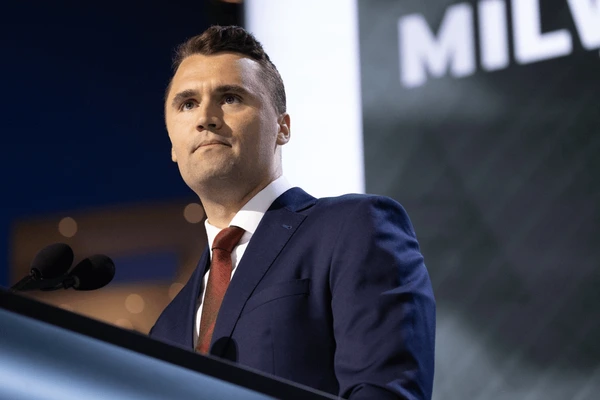

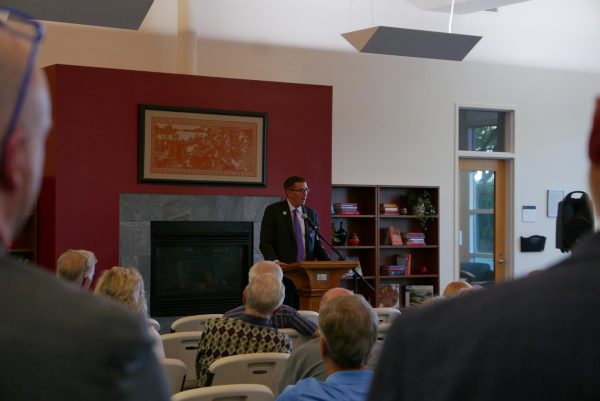
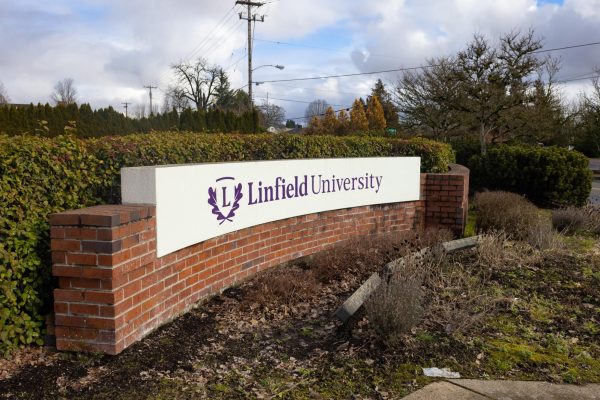


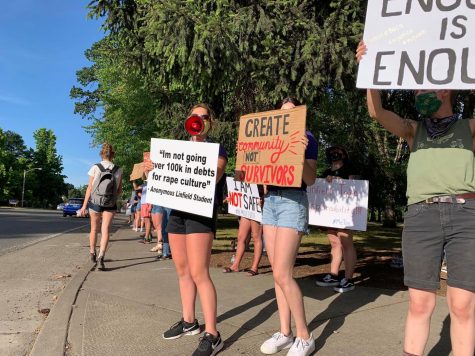

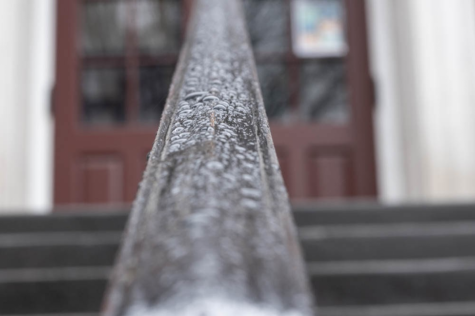

Samantha Palmer • Jul 26, 2020 at 8:35 pm
Thank you for sharing not only perspectives from all sides, but also multiple perspectives from faculty members. It has become painfully clear that Linfield’s President and BoT is not meeting the minimum standard of providing a safe campus for students, nor are they adequately listening to concerns from student and faculty stakeholders. I am ashamed to be an alum, and hope fervently that Linfield will begin listening soon so that they can move forward.
Prof. Anna Keesey • May 18, 2020 at 7:23 pm
I am probably not alone among faculty in being intensely grateful for the tenacity, clarity, fairness, and depth of the Linfield Review’s reporting on this matter, which affects not only the individuals hurt, but all of us who live and work at Linfield. This is how truth, accountability and justice are achieved. Thank you.
Prof. Anna Keesey
Linfield Department of English